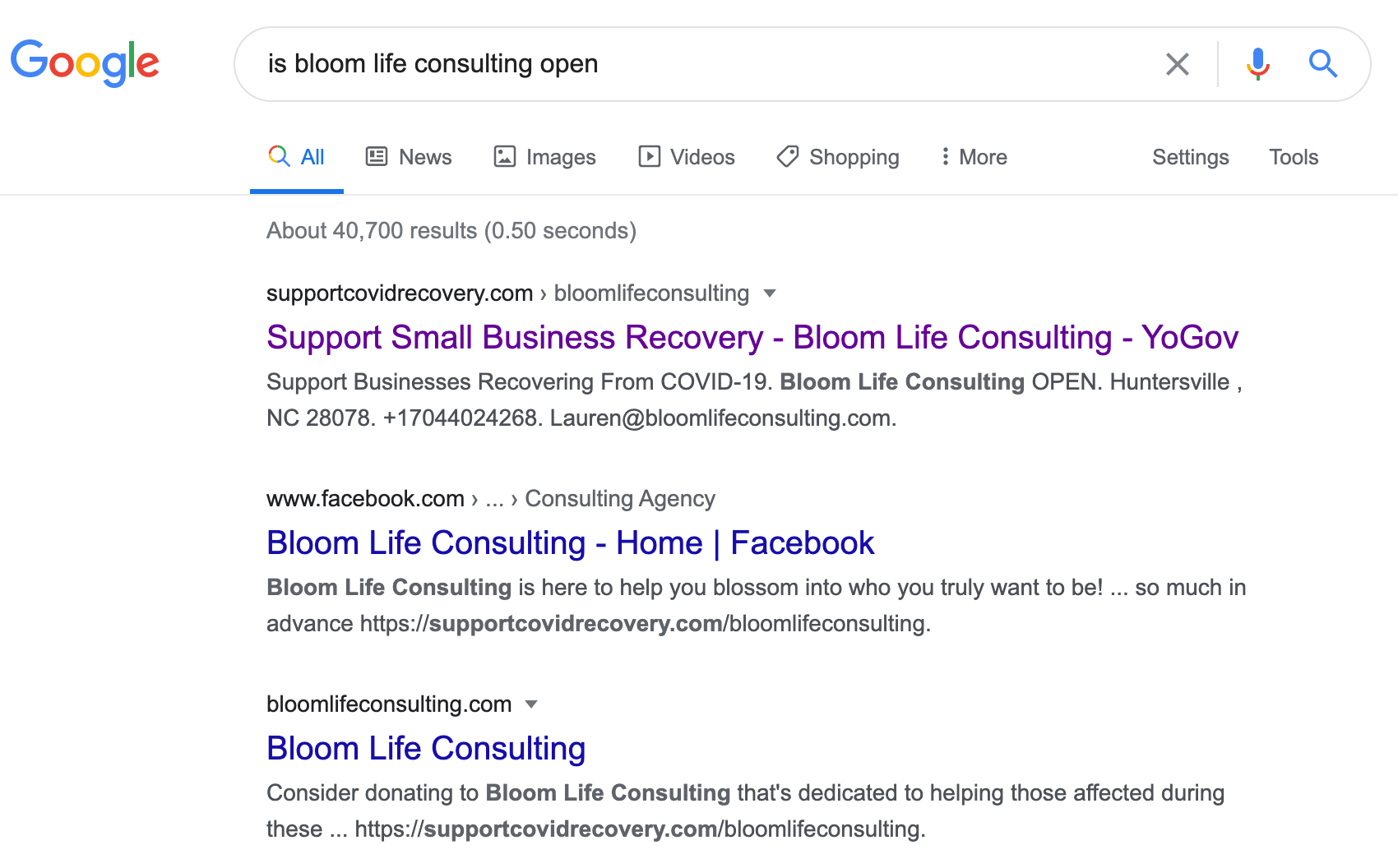The majority of successful businesses these days achieve their success through their online presence and having a strong SEO - search engine optimization - presence. Building your SEO is the easiest and most effective way to increase your business online presence and attract customers who will be loyal and satisfied.
SEO is simply aligning your business’ online content, whether website copy, blog posts, images or other digital content, with what is being searched on Google and other engines. Laying the groundwork with good SEO practices will bring customers streaming back as soon as your doors are open again.
We caught up with SEO expert Jess Barron, who has worked with major brands like Livestrong, Hipcamp and Headspace, to talk about how small businesses specifically can utilize SEO and the best tools to use for small business.
📌 Pro-tip: If you don't have a website, you can instantly create a website on Skip and start building your SEO presence.
Why is SEO important?
SEO is the best way for small business owners to pivot their model to prepare for a changing world and help customers to find them. Whether you’re adding new digital services due to coronavirus, looking to bring customers in once your doors are open again, or trying to take advantage of pent up demand for goods and services that have been inaccessible for months, SEO can help you get there. SEO seems complex, but it begins with a simple goal: think like your customer.
“We know that people type the questions on their mind into Google, whether that is trying to find a business, trying to find out how to file for unemployment benefits, trying to find out about health concerns: they type it into Google. So as a business owner, you want to learn whether the terms for your business are being searched for,” Jess said.
The first step as a business owner is thinking about what kind of questions customers might be searching that are related to your business and creating some content to respond to them.
What SEO Tools Can I Use for My Business?
There are many free tools that business owners can utilize to see how their business is ranking on Google and what terms people are searching for that are relevant to them.
Jess suggests: Utilize Google Trends and Also Asked to see what is being searched that is relevant to your business
Search your business in an incognito window to see how you are ranking. Once you find search terms, you can hire freelancers from sites like Upwork to create content for you or write it yourself.
“Look for questions people are asking, and then answer those questions in content, preferably succinctly in the first paragraph,” said Jess.
Even if you are a small business, you can rank highly in local google searches in your area and bring in customers, Jess explained. Create a Google Business profile.
“If you can be considered a trusted source, you can quickly rank really well,” said Jess.
How Can I Improve My SEO Rankings?

Once you have searched your business in an incognito window and seen how you rank, you’re ready to improve your rankings. “Whatever you’re ranking, whether it’s five or fifteen or two, there is room to grow until you are ranking number one,” said Jess. So what’s next?
- Make sure that you have a strong website that loads on mobile devices, since Google prioritizes those sites.
- Create content on your website that is SEO optimized, including naming photos on your website to match with Google search terms, creating blog posts, and captioning photos.
- List yourself on as many platforms as possible, including Yelp, Google and SupportCovidRecovery.com.
- Ask people to like and review your business on listing platforms.
“Look at who is at the top, and the next several ones too. See who is coming up higher. Probably the reason is that they have used some keywords, and answered some questions that people are asking,” said Jess.
Final Thoughts: Making SEO Improvements to Help your Small Business
SEO is a simple and critically important way you can invest in your business so that you can continue to grow your business strength in 2025 and beyond. You already know you have a great business you believe in—now you just have to make sure your customers know where to find you.
📌 Pro-tip: If you don't have a website, you can instantly create a website on Skip and start building your SEO presence.

